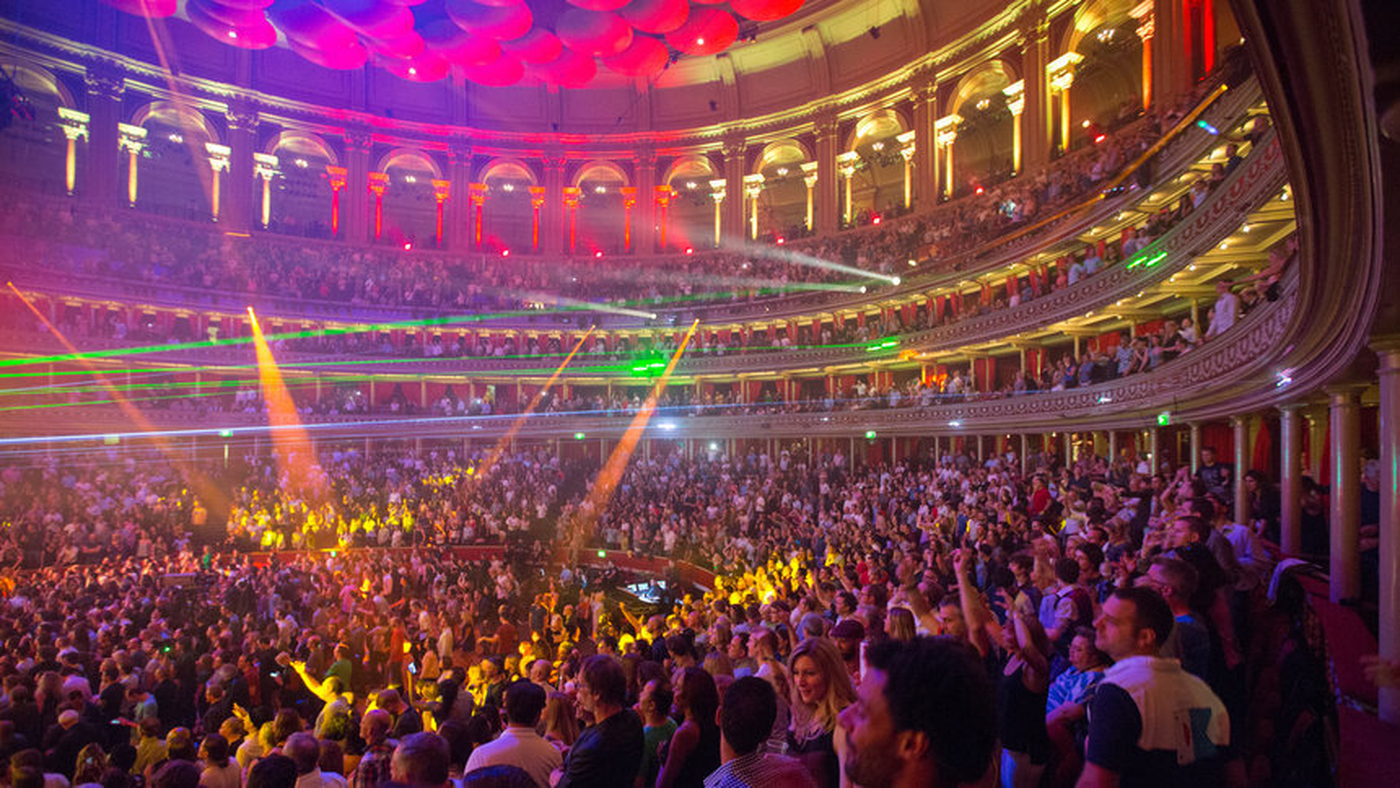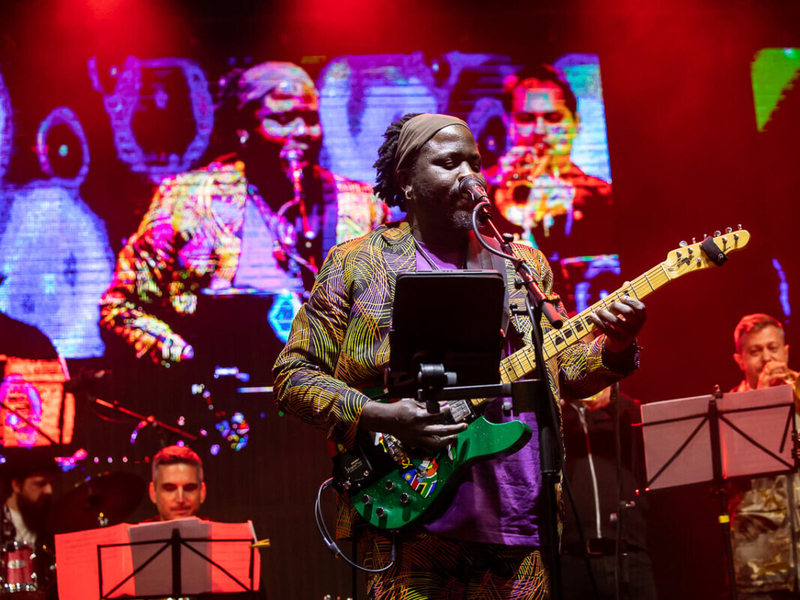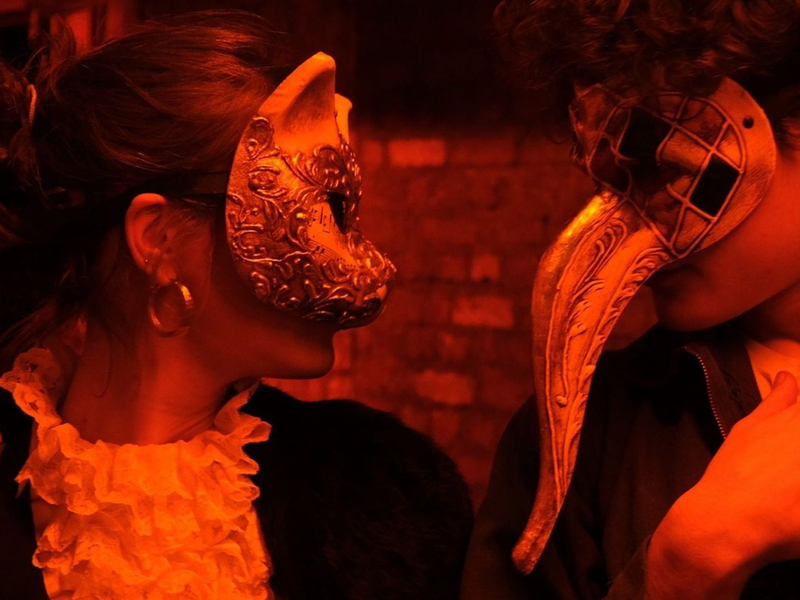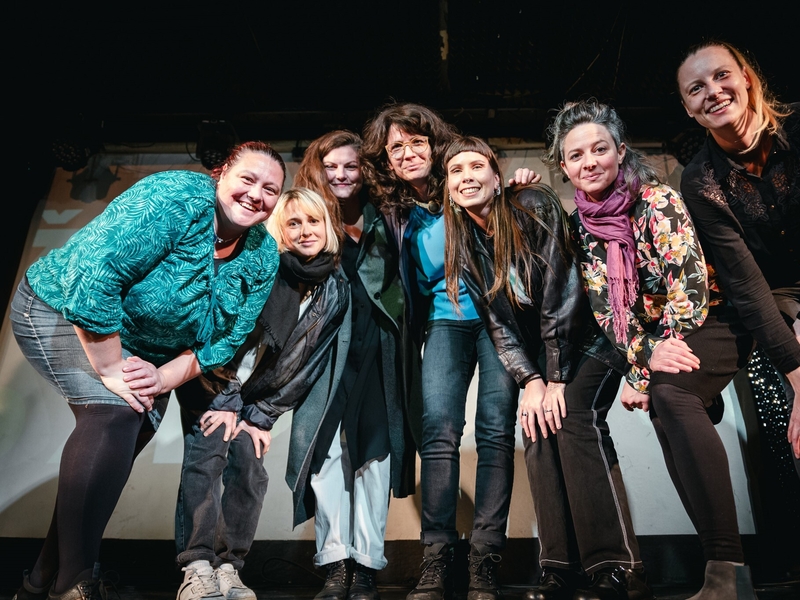The BBC Proms - EFFE Laureate
Simon Mundy interviews David Pickards, BCC Proms Director
150 years ago the founder of The Proms, Henry Wood, was born
and 125 years ago he conducted the first Proms concert in London's Queen's
Hall. The extraordinarily young conductor's formula was simple. He wanted a
summer season for his underemployed orchestra and he wanted an audience who
would never normally be able to afford concert tickets. So the seats on the
floor of the hall were removed. The expensive stalls became cheap standing room
and the programmes mixed great classics, pieces that were just fun, and lots of
new music.

Now the formula has expanded but not changed. The BBC, its radio studios built next door to the Queen's Hall, took over the administration in 1937 and the concerts were forcibly moved two miles west to the much bigger Royal Albert Hall when the Queen's Hall was bombed in 1942. The Prommers stand in the huge arena and promenade around the gallery just under the roof. The festival has concerts every day (sometimes several) for ten weeks from July till September and every one is broadcast live on radio, with an increasing number on TV too.
Since the 1970s chamber concerts and talks have spread to neighbouring churches, colleges and halls, to a big outdoor stage in Hyde Park for crossover pop/classics, and – on the last night – to similar big stages in some of Britain's other cities, notably Belfast and Liverpool.
Seats, expensive and a little aloof from the action, can be booked in advance but to Prom you join the queue that snakes around the London streets from lunchtime (and, for a really popular night, sometimes long before). The queue is a social event in itself. Friends are made and greeted, students mix with octogenarians, kind neighbours keep your place when necessary. As the summer goes on you recognise more and more of the regulars. A guide to the average age range is that 57% are under 45.
Once inside, the prommers in the arena and gallery share their opinions in chants – special ones reserved for the orchestra tuning up and the opening of the piano lid. When the music starts, though, the silence is absolute (invariably coughs come from the expensive seats). 'We know the atmosphere is special,' says Proms Director David Pickard, 'because our musicians tells us it is. If you're in a visiting orchestra the feedback from the hall – the way the audience interacts – is extraordinary.'
'I can't think of any festival in the world that has the breadth and depth of The Proms,' David says. 'Reaching the widest possible audience has always been important but, like classical music itself, that means something different in 2019 than it did in 1895. So the question I constantly ask myself is, if Henry Wood was bringing in 'new' composers like Sibelius, Rachmaninov and Ravel, who am I bringing in?'
The answer came with the first (that word is going to appear a lot in this paragraph) work of the first night of this year's festival. Karina Canellakis became the first woman to conduct the First Night. It opened with the first performance of Canadian composer Zosha Di Castri's Long Is The Journey – Short Is The Memory, written to mark the 50th anniversary of the first moon landing the next day. Then there was the first Proms performance of Dvorak's neglected tone poem The Golden Spinning Wheel, and finally Janacek's monumental Glagolithic Mass, first introduced to London by Henry Wood at The Proms in 1930. I think that gives the idea!
Note from the EFFE International Jury
The Proms have dominated summer music-making in London for well over 100 years but recently the BBC has taken enormous steps to move beyond their traditional venues and audience. They have an extraordinary record for commissioning composers, hosting a huge range of orchestras and ensembles and developing fresh talent. The Proms have a very democratic atmosphere and an incredible media-footprint.
More information:
19 July 2019 - 14 September 2019 - London, United Kingdom


